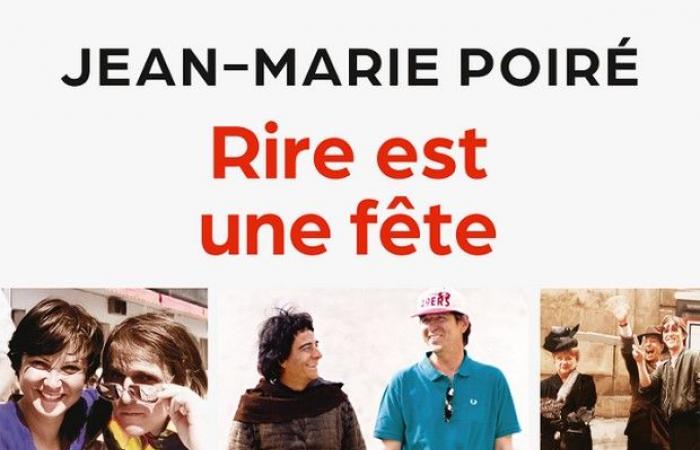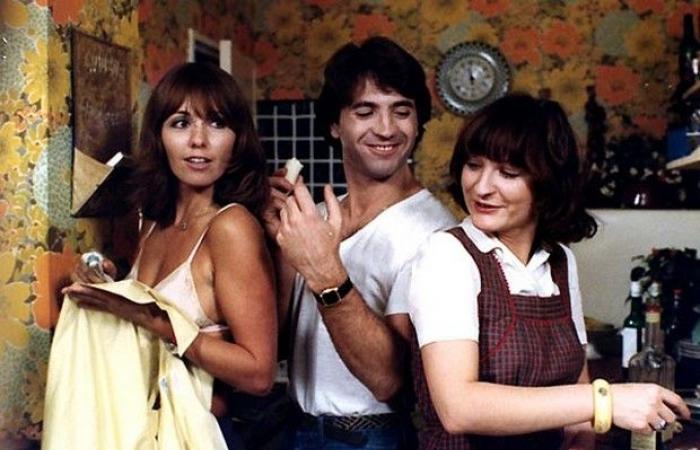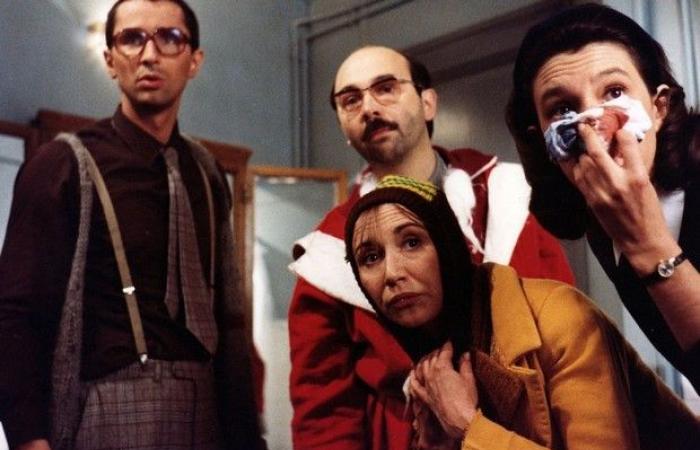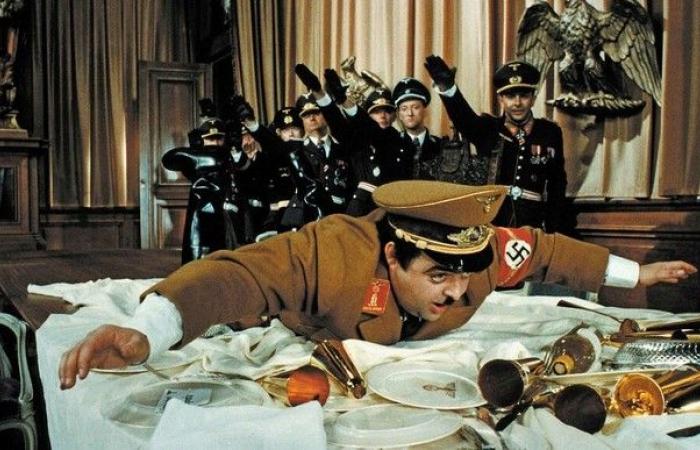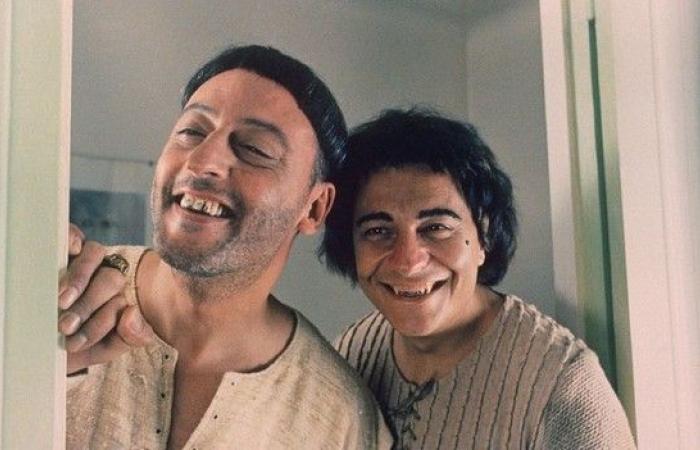Laughter is a party
France, 2024
Titre original : –
Author: Jean-Marie Poiré
Publisher: Éditions Michel Lafon
422 pages
Genre: Autobiography
Publication date: April 11, 2024
Format : 140 mm X 225 mm
Prix : 20€95
3/5
Even though he hasn't made a film for ten years – his last big success dates back to the last century – and the kind of popular comedy for which he is famous very rarely appears on the big screen, French director Jean-Marie Poiré still enjoys a certain reputation. The countless rebroadcasts of his most entertaining films on television ensure him a very wide public appreciation that many of his colleagues can only dream of.
Furthermore, as his promotional tour for “Rire est une fête” proved once again last spring on various television sets, he is a character. A term that we hear rather in the good sense of the term here. Because his undeniable talent for popular and unbridled comedies is inevitably found in the life philosophy of a man who had a dazzling career in French cinema in the 1980s and '90s.
His autobiography, subtitled “Cash memoirs of a cult director” – hello the commercial argument that leans dangerously towards pretension! – does it live up to this exceptional journey, punctuated by films as memorable, even cult, indeed, as Santa Claus is trash, Grandpa resists, Twist Again in Moscow, Operation Corned Beef et Visitors ? Yes and no.
On the one hand, Poiré knows how to stuff the more than four hundred pages of his book with an imposing number of anecdotes, which are generally amusing. On the other hand, the very arbitrary chronology of the work, as well as the absence of a real revealing statement, either about his private life, or in terms of the transmission of professional know-how and passion, make the Quite an informative read. At least the very common language used by the author, which tends to include slang expressions, allows you to devour this story of a life marked by laughter without displeasure.
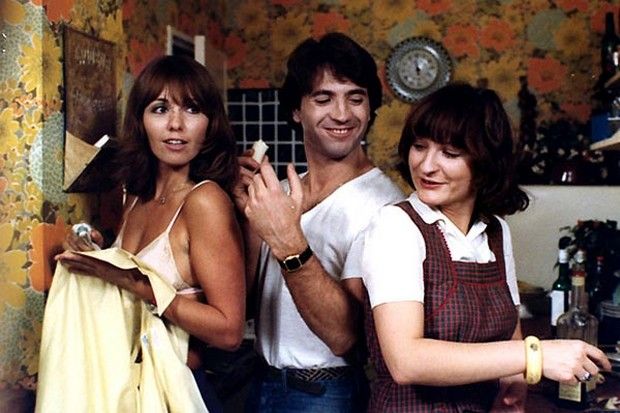
Synopsis: Without cutting or editing, director Jean-Marie Poiré reveals the secrets of filming his cult films. Accompanying him are his lifelong accomplices, first and foremost his co-writer and regular actor Christian Clavier, as well as Josiane Balasko, Valérie Lemercier, Gérard Depardieu, Gérard Jugnot, Jacques Villeret and many others. The director of some of the biggest successes of French cinema at the end of the last century invites us to share his memories, from the vagaries of the profession of cinema director to the whims of more or less famous actors, including his relationship sometimes tempestuous with its producers such as Alain Terzian, Christian Fechner, his father Alain Poiré and the eternal missed appointment with Claude Berri.
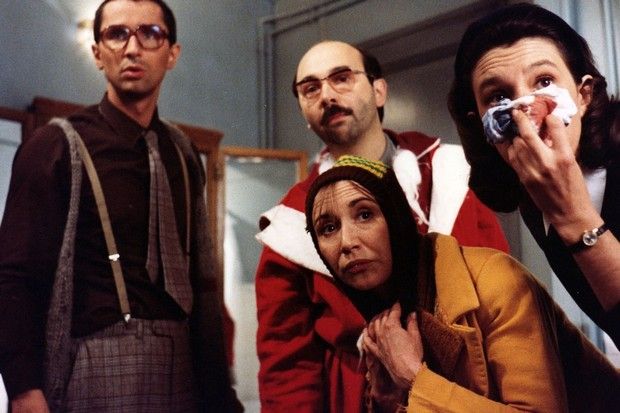
Tamasa Distribution All rights reserved
Anecdote upon anecdote
It's better to have a solid knowledge of the chronology of Jean-Marie Poiré's filmography in order to get your bearings in “Laughing is a Party”! Indeed, after the most conventional preface written by his long-time accomplice Christian Clavier, the director of Visitors immediately destroys Valérie Lermercier, hesitant to commit to the sequel to the fantastic comedy, champion of the French box office in the mid-90s.
A rather sensational introduction to the subject and also written with a most pleasant literary ease, which proves doubly representative of what will follow over the next four hundred pages. First, because Poiré completely fulfills his initial contract, that is to say frankly what he thinks of the collaborators who have caused him pain, in one way or another . Then, because of this almost unfortunate approximation in the establishment of any temporal framework, constantly undermined by circumstantial comings and goings.
-Thus, the numerous personalities that Jean-Marie Poiré encountered during his half-century-long career can easily be divided into two categories. His companions of laughter with whom he maintains a bond of deep friendship and complicity: Clavier, of course, but also Josiane Balasko and the Splendid troupe. And opposite, all these people against whom he seems to have kept a grudge and with whom he therefore settles his scores, supporting arguments, although not always with flawless objectivity. Nothing could be more normal in the context of an autobiography which rightly claims to be outspoken, right? Still, a good number of idols of French cinema, from Coluche to Pierre Richard, via Richard Anconina, hardly have the best role.
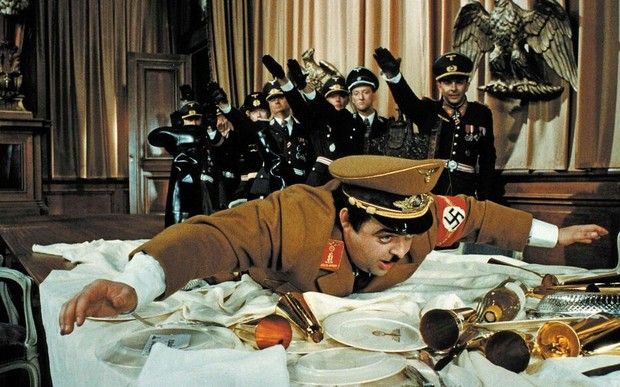
Going back in time with lightness
Which does not mean that Jean-Marie Poiré uses this substantial work to sing his own praises. For this, he demonstrates too much modesty and, above all, acute awareness of the collaborative nature of the film industry, itself subject to an unpredictable alternation of success and failure. Since he knew both extensively, the director prefers gratitude to his team to navel-gazing pride. Just like the highlighting of the talent of others in the story of hedonistic escapades, which were undoubtedly part of the existence of a man whose greatest pleasures relate to gluttony and a rather bling lifestyle. -bling.
Fortunately for us, the recurring motif of his autobiography lies in the incredible adventures of filming or the encounters, stimulating from an intellectual or humorous point of view, that he was able to experience, without him boasting of his female conquests or sums of money spent in one weekend in Deauville.
However, the wealth of anecdotes on some of his films – not all, since he barely mentions his work as a screenwriter alongside Michel Audiard and for the needs of the world of 7th company and that he completely ignores his 2002 adaptation of the hit play My wife's name is Maurice – does not really allow us to have a better understanding of the man Jean-Marie Poiré.
On this subject, the fact that he waits until the very end of his book to discuss his childhood and his family history, from page 347 and chapter 29 to be precise, reflects the almost complete refusal on his part to reveal anything it is from his intimate feelings. The only way to be able to understand the character a little better, which is after all the aim of any self-respecting autobiography, remains to read between the lines of a life story that is certainly entertaining and sometimes fascinating, but in the overall a little too superficial.

Gaumont All rights reserved
Conclusion
If you are a fan of Jean-Marie Poiré and his comedies with impressive popular longevity, “Rire est une fête” will certainly delight you. And even if these classics of mainstream French cinema are not part of your cinephile canon, this book will nevertheless give you a better understanding of how the film industry worked at the end of the last century. Thanks to the author's extremely fluid and simple writing, it was very easy to read. This is all the more so since Jean-Marie Poiré has mastered to perfection the literary art of going from cock to donkey, without these abrupt transitions unduly hindering reading comfort.
It's just a shame that a filmography, even rudimentary, of the director is absent from the book, as is the summary! To find our way retrospectively, we would therefore have to rely on the index which is suitably provided.

